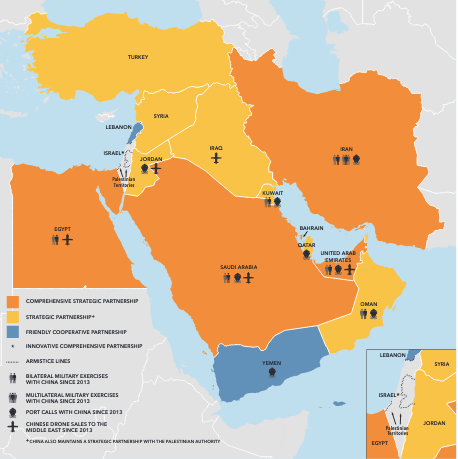US-China ESRC congressional report released, China-Saudi-Iran tripartite talks in Riyadh, another Chinese railway deal in Morocco, Ras Al-Khaimah ruler in Guangzhou
U.S.-China Economic and Security Review Commission 2024 Report to Congress Executive Summary and Recommendations - This report was released today and I highly recommend you read it. Lots of crucial issues are covered here - from a US perspective of course - and this gives a good sense of how the Commission see the trajectory of the US-China relationship. For my purposes, China-MENA warranted a standalone section in the report, which is not surprising since I provided testimony for their April hearings on the topic. No doubt many of you will disagree with some of the findings, but again, highly encourage reading the report itself. Here’s the opening paragraph on China-MENA:
The Middle East is a region of strategic importance to China due to its energy resources, location astride key trade routes, and possible receptivity to Chinese efforts to construct an alternative, illiberal world order. As China has deepened its trade and investment interests in the Middle East over the past decade, it has also built a variety of diplomatic partnerships and sought to present itself as a neutral arbiter of regional disputes while expanding its military activity in the region. In the short run, China benefits from its relationships in the Middle East focused on energy trade and securing infrastructure contracts for its SOEs. In the long term, Beijing aims to expand market share for renewable energy and high-value exports, gain supporters in its bid for global leadership, and potentially establish new outposts capable of supporting its military for increased power projection. China’s involvement in the Middle East thus presents U.S. policymakers with an array of economic, normative, and geopolitical challenges.




